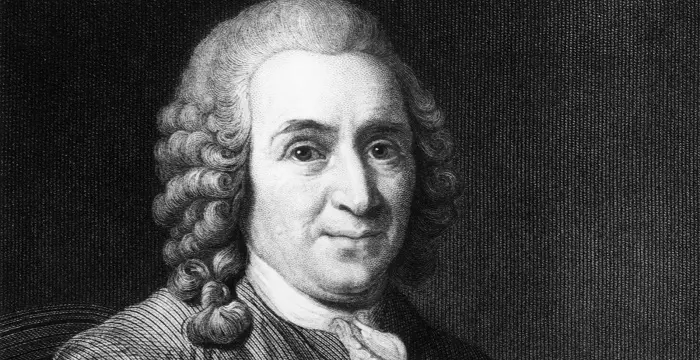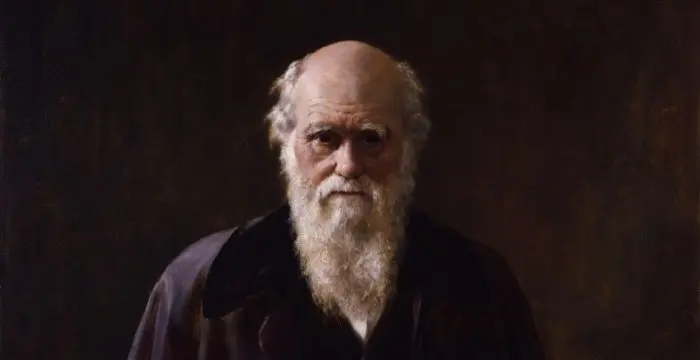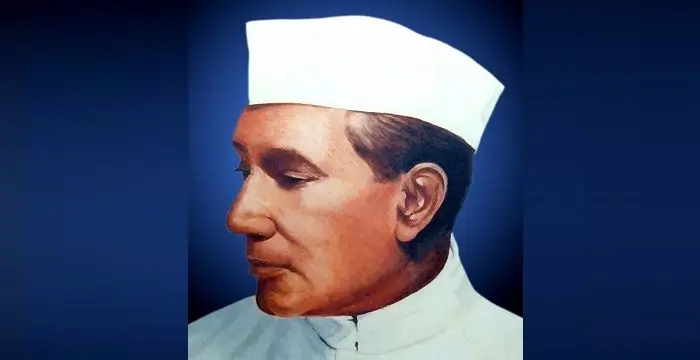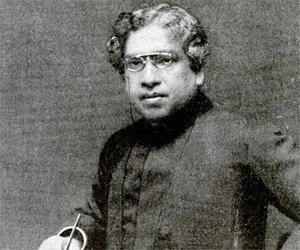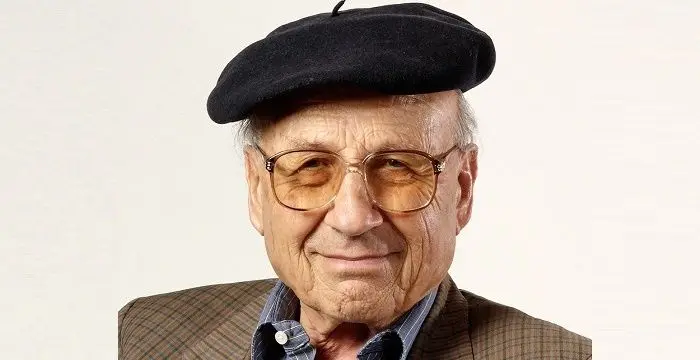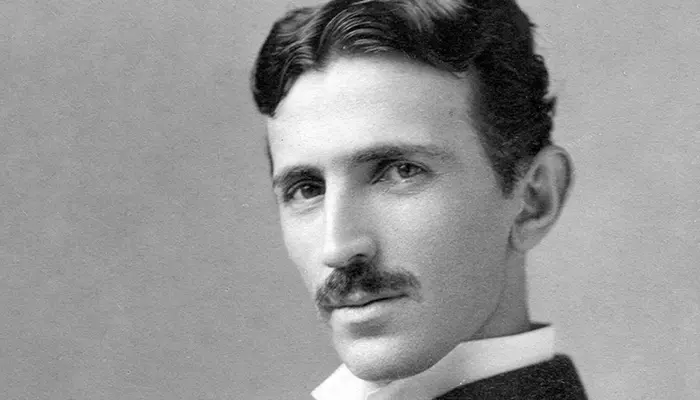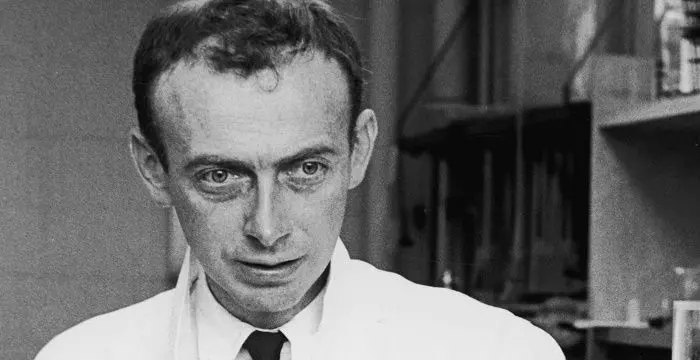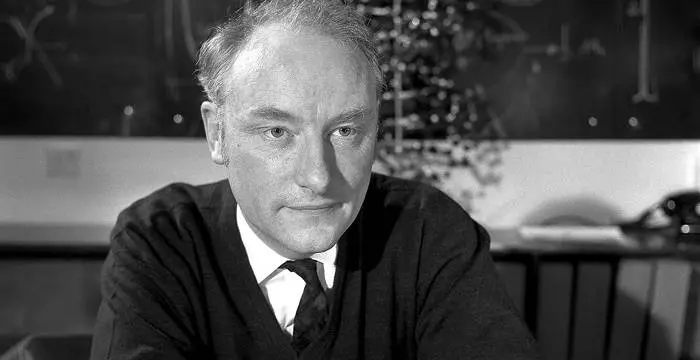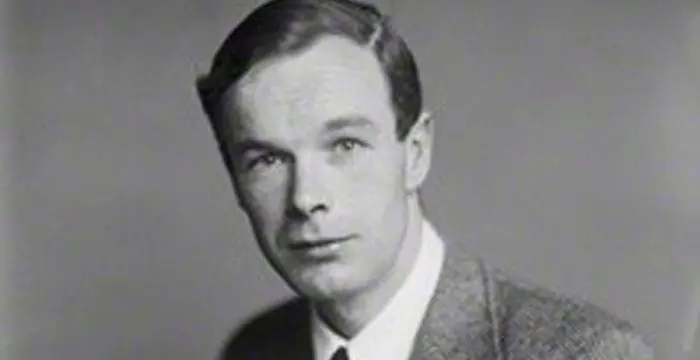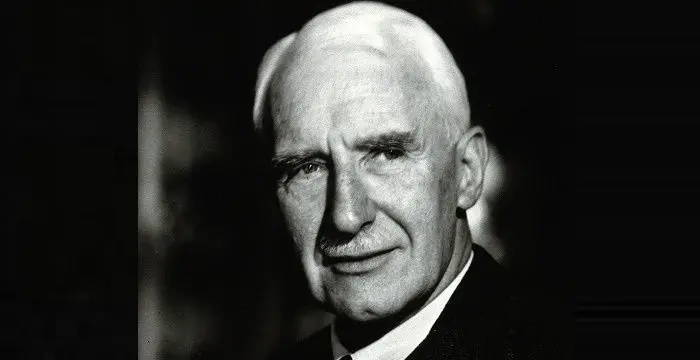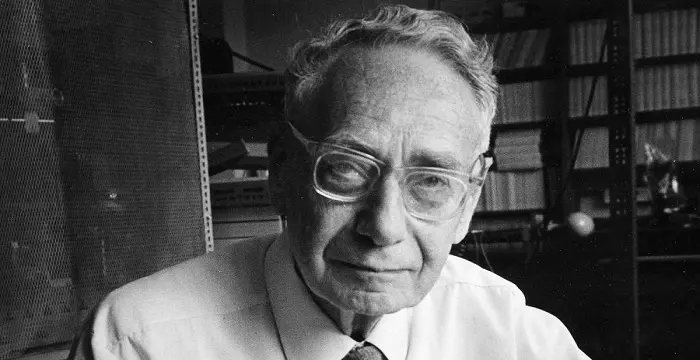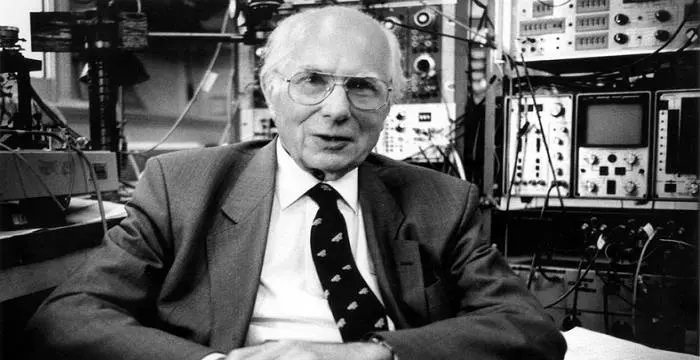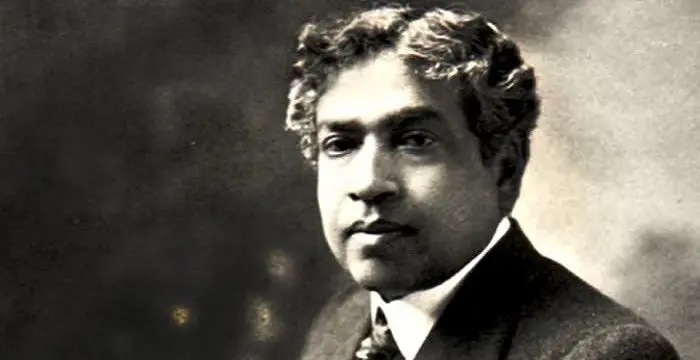
Jagadish Chandra Bose - Biologists, Birthday and Family
Jagadish Chandra Bose's Personal Details
Jagadish Chandra Bose was a polymath, physicist, botanist and considered to be one of the fathers of radio science
| Information | Detail |
|---|---|
| Birthday | November 30, 1858 |
| Died on | November 23, 1937 |
| Nationality | Indian |
| Famous | Cambridge University, Scientists, Physicists, Biologists, Biophysicists, Botanists |
| Spouses | Abala Bose |
| Universities |
|
| Notable Alumnis |
|
| Birth Place | Bikrampur, Bengal Presidency, British India (Now Munshiganj District of Bangladesh) |
| Gender | Male |
| Father | Bhagawan Chandra Bose |
| Sun Sign | Sagittarius |
| Born in | Bikrampur, Bengal Presidency, British India (Now Munshiganj District of Bangladesh) |
| Famous as | Physicist |
| Died at Age | 78 |
// Famous Botanists
Carl Linnaeus
Carolus Linnaeus was a renowned Swedish biologist popularly known as the ‘Father of Modern Taxonomy’ who founded the binomial nomenclature. Read on to know more about his childhood, career, profile and timeline
Charles Darwin
Charles Darwin was one of the most influential figures in human history. Go through this biography to get details about his life, profile and timeline.
Birbal Sahni
Birbal Sahni was an Indian palaeobotanist who founded the Birbal Sahni Institute of Palaeobotany in Lucknow. This biography of Birbal Sahni provides detailed information about his childhood, life, achievements, works & timeline.
Jagadish Chandra Bose's photo
Who is Jagadish Chandra Bose?
The first person to prove that plants also have the ability to feel pain and affection, Jagadish Chandra Bose was an Indian polymath whose research has extensively contributed to the fields of botany, physics, archeology and radio science. Bose is considered to be the first modern scientist of India for the recognition he received from the Royal Institution, London, where the most prominent British scientists of those days gathered and discussed their latest discoveries and inventions. He is credited to have laid the foundations of experimental science in India and was a pioneer in the area of microwave optics technology. He designed a galena receiver which was amongst the earliest examples of a lead sulphide photo conducting device. From a young age he displayed a keen interest in science and set his eyes on becoming a doctor. But he could not pursue a career in medicine due to some reasons and therefore shifted his focus to research. A very determined and hardworking person, he immersed himself deeply into research and made his findings public for the benefit of scientific development. Along with being a scientist, he was also a talented writer who set the precedence for Bengali science fiction writing.
// Famous Physicists
Henry Cavendish
Henry Cavendish was a theoretical chemist and physicist, renowned for discovery of hydrogen and calculation of the mass of earth. To know more about his childhood, profile, timeline and career read on
Walter Kohn
Nobel Laureate Walter Kohn was an Austrian-born American theoretical chemist and physicist. Check out this biography to know about his childhood, life, achievements, works & timeline.
Nikola Tesla
Nikola Tesla was a Serbian-American inventor, best known for his development of alternating current electrical systems. This biography of Nikola Tesla provides detailed information about his childhood, life, achievements, works & timeline.
Childhood & Early Life
Jagadish Chandra Bose was the son of Bhagawan Chandra Bose, a leader of the Brahmo Samaj who worked as an assistant commissioner.
His father wanted him to learn the vernacular language and be familiar with his own culture before learning English. Thus young Jagadish was sent to a vernacular school where he had classmates from various religions and communities. Bonding with different people without any discrimination deeply impacted the boy.
In 1869, he enrolled at the Hare School before moving on to St. Xavier’s School at Kolkata. He joined the St. Xavier’s College in 1875 where he became acquainted with the Jesuit Father Eugene Lafont who instilled in him a deep interest in natural sciences.
After receiving his bachelor’s degree from the University of Calcutta in 1879 he wanted to go to England to study for the Indian Civil Service. However, he changed his plans and decided to study medicine. This plan too did not suit him and once again he had to consider another option.
Finally, he decided to study Natural Science and secured admission in Christ’s College, Cambridge. He completed his Natural Science Tripos from the college and pursued a BSc from the University of London earning his degree in 1884.
Bose had the privilege of being taught by illustrious teachers like Francis Darwin, James Dewar and Michael Foster at the Cambridge. There he also met a fellow student, Prafulla Chandra Ray, with whom he became good friends.
Career
On his return to India in 1885 he was appointed as an officiating professor of physics in Presidency College on the request of Lord Ripon to the Director of Public Instruction.
In his first job, Bose became a victim of racism as his salary was fixed at a much lower level than that of the British professors. As a protest Bose refused to accept the salary and taught at the college for three years without payment.
After some time the Director of Public Instruction and the Principal of the Presidency College made him permanent and paid him his full salary for the previous three years. Such was the character of J.C. Bose.
There were many other issues in the college as well. The college did not had a proper laboratory and was not conducive for original research. Bose actually funded his research with his own money.
Starting from 1894 he experimented on the Hertzion waves in India and created the shortest radio-waves of 5mm. He conducted the first communication experiments in 1895 becoming the pioneer in multimedia communication.
He presented his first scientific paper, ‘On the polarization of Electric Rays by Double Reflecting Crystals’ before the Asiatic Society of Bengal in May 1895. His papers were later published by the Royal Society of London in 1896.
In 1896 he met Marconi who was also working on wireless signaling experiment and in 1899 he developed the “iron-mercury-iron coherer with telephone detector” which he presented at the Royal Society.
He was also a pioneer in the field of biophysics and was the first one to suggest that plants too can feel pain and understand affection.
He was also a writer and authored ‘Niruddesher Kahini’ in 1896 which was the first major work in Bengali science fiction. This story was later translated into English.
Major Works
A polymath, Jagadish Chandra Bose left an indelible mark in several fields of study. He invented the crescograph for measuring the growth in plants using a series of clockwork gears. He is also credited with the invention of the first wireless detection device, an invention he never tried to get patented himself.
Awards & Achievements
He was made Companion of the Order of the Indian Empire in 1903 and Companion of the Order of the Star of India in 1912 in recognition of his contributions to science.
Personal Life & Legacy
He married Abala, the daughter of the renowned Brahmo reformer Durga Mohan Das, in 1887. She was a renowned feminist in her own right and fully supported her husband throughout his busy scientific career.
He died in 1937 at the age of 78.
The Acharya Jagadish Chandra Bose Indian Botanic Garden is named in the honor of this extraordinary scientist.
Trivia
This great Indian scientist was recently acknowledged by IEEE, USA as one of the pioneers in the discovery of radio.
// Famous Scientists
Juliane Koepcke
Juliane Koepcke is a German-Peruvian biologist, who was the lone survivor among the 92 passengers and crew of the ill-fated LANSA Flight 508 that crashed in the Peruvian rainforest on 24 December 1971. Know more about her life in this biography.
Henry Cavendish
Henry Cavendish was a theoretical chemist and physicist, renowned for discovery of hydrogen and calculation of the mass of earth. To know more about his childhood, profile, timeline and career read on
Konstantin Tsiolkovsky
Konstantin Tsiolkovsky was a Russian rocket scientist and a pioneer of astronautics. This biography provides detailed information about his childhood, family, personal life, career, achievements, etc.
Jagadish Chandra Bose's awards
| Year | Name | Award |
|---|---|---|
Other | ||
| 0 | Companion of the Order of the Indian Empire (1903) | |
| 0 | Companion of the Order of the Star of India (1912) | |
Jagadish Chandra Bose biography timelines
- // 1869In 1869, he enrolled at the Hare School before moving on to St. Xavier’s School at Kolkata. He joined the St. Xavier’s College in 1875 where he became acquainted with the Jesuit Father Eugene Lafont who instilled in him a deep interest in natural sciences.
- // 1879After receiving his bachelor’s degree from the University of Calcutta in 1879 he wanted to go to England to study for the Indian Civil Service. However, he changed his plans and decided to study medicine. This plan too did not suit him and once again he had to consider another option.
- // 1884Finally, he decided to study Natural Science and secured admission in Christ’s College, Cambridge. He completed his Natural Science Tripos from the college and pursued a BSc from the University of London earning his degree in 1884.
- // 1885On his return to India in 1885 he was appointed as an officiating professor of physics in Presidency College on the request of Lord Ripon to the Director of Public Instruction.
- // 1887He married Abala, the daughter of the renowned Brahmo reformer Durga Mohan Das, in 1887. She was a renowned feminist in her own right and fully supported her husband throughout his busy scientific career.
- // 1894Starting from 1894 he experimented on the Hertzion waves in India and created the shortest radio-waves of 5mm. He conducted the first communication experiments in 1895 becoming the pioneer in multimedia communication.
- // 1895He presented his first scientific paper, ‘On the polarization of Electric Rays by Double Reflecting Crystals’ before the Asiatic Society of Bengal in May 1895. His papers were later published by the Royal Society of London in 1896.
- // 1896In 1896 he met Marconi who was also working on wireless signaling experiment and in 1899 he developed the “iron-mercury-iron coherer with telephone detector” which he presented at the Royal Society.
- // 1896He was also a writer and authored ‘Niruddesher Kahini’ in 1896 which was the first major work in Bengali science fiction. This story was later translated into English.
- // 23rd Nov 1937He died in 1937 at the age of 78.
// Famous Biophysicists
James Watson
James Watson is an American molecular biologist and geneticist who played a crucial role in the discovery of the molecular structure of D.N.A. This biography provides detailed information about his childhood, life, achievements, works & timeline
Francis Crick
Francis Crick was an English molecular biologist, biophysicist and neuroscientist, who received the Nobel Prize for Medicine. This biography profiles his childhood, life, career, achievements and timeline.
Alan Lloyd Hodgkin
Sir Alan Lloyd Hodgkin was an English biophysicist and a physiologist who received the Nobel prize in Physiology or Medicine in 1963. This biography profiles his childhood, life, research, achievements and timeline.
Archibald Hill
Archibald Vivian Hill was a Nobel Laureate English physiologist who is credited for discovering the production of heat in muscles. Check out this biography to know about his childhood, life, achievements, works & timeline.
Sir Bernard Katz
Sir Bernard Katz was a German born biophysicist who is known for his remarkable work on nerve biochemistry. Check out this biography to know about his childhood, life, achievements, works & timeline.
Andrew Huxley
Sir Andrew Fielding Huxley was a British physiologist, biophysicist, mathematician and a mechanical wizard. He was awarded the Nobel Prize for Medicine in 1963. This biography profiles his childhood, life, research, achievements and timeline.
Jagadish Chandra Bose's FAQ
What is Jagadish Chandra Bose birthday?
Jagadish Chandra Bose was born at 1858-11-30
When was Jagadish Chandra Bose died?
Jagadish Chandra Bose was died at 1937-11-23
Where was Jagadish Chandra Bose died?
Jagadish Chandra Bose was died in Giridih, Bengal Presidency, British India
Which age was Jagadish Chandra Bose died?
Jagadish Chandra Bose was died at age 78
Where is Jagadish Chandra Bose's birth place?
Jagadish Chandra Bose was born in Bikrampur, Bengal Presidency, British India (Now Munshiganj District of Bangladesh)
What is Jagadish Chandra Bose nationalities?
Jagadish Chandra Bose's nationalities is Indian
Who is Jagadish Chandra Bose spouses?
Jagadish Chandra Bose's spouses is Abala Bose
What was Jagadish Chandra Bose universities?
Jagadish Chandra Bose studied at Cambridge University
What was Jagadish Chandra Bose notable alumnis?
Jagadish Chandra Bose's notable alumnis is Cambridge University
Who is Jagadish Chandra Bose's father?
Jagadish Chandra Bose's father is Bhagawan Chandra Bose
What is Jagadish Chandra Bose's sun sign?
Jagadish Chandra Bose is Sagittarius
How famous is Jagadish Chandra Bose?
Jagadish Chandra Bose is famouse as Physicist
